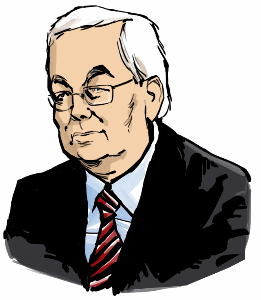© Gunnar Tómasson
25 June 2016
Background – The Hamlet Myth
(Giorgio de Santillana)
This is meant to be only an essay. It is a first reconnaissance of a realm well-nigh unexplored and uncharted. From whichever way one enters it, one is caught in the same bewildering circular complexity, as in a labyrinth, for it has no deductive order in the abstract sense, but instead resembles an organism tightly closed in itself, or even better, a monumental „Art of the Fugue.“
The figure of Hamlet as a favorable starting point came by chance. Many other avenues offered themselves, rich in strange symbols and beckoning with great images, but the choice went to Hamlet because he led the mind on a truly inductive quest through a familiar landscape – and one which has the merit of its literary setting. Here is a character deeply present to our awareness, in whom ambiguities and uncertainties, tormented self-questioning and dispassionate insight give a presentiment of the modern mind. His personal drama was that he had to be a hero, but still try to avoid the role Destiny assigned him. His lucid intellect remained above the conflict of motives – in other words, his was and is a truly contemporary consciousness. And yet this character whom the poet made one of us, the first unhappy intellectual, concealed a past as a legendary being, his features predetermined, preshaped by long-standing myth. There was a numinous aura around him, and many clues led up to him. But it was a surprise to find behind the mask an ancient and all-embracing cosmic power – the original master of the dreamed-of first age of the world.
Yet in all his guises he remained strangely himself. The original Amlóði, as his name was in Icelandic legend, shows the same characteristics of melancholy and high intellect. He, too, is a son dedicated to avenge his father, a speaker of cryptic but inescapable truths, an elusive carrier of Fate who must yield once his mission is accomplished and sink once more into concealment in the depths of time to which he belongs: Lord of the Golden Age, the Once and Future King.
This essay will follow the figure farther and farther afield, from the Northland to Rome, from there to Finland, Iran, and India; he will appear again unmistakably in Polynesian legend. Many other Dominions and Powers will materialize to frame him within the proper order.
Amlóði was identified, in the crude and vivid imagery of the Norse, by the ownership of a fabled mill which, in his own time, ground out peace and plenty. Later, in decaying times, it ground out salt; and now finally, having landed at the bottom of the sea, it is grinding rock and sand, creating a vast whirlpool, the Maelstrom (i.e. the grinding stream, from the [Icelandic] verb mala, „to grind“), which is supposed to be a way to the land of the dead. This imagery stands, as the evidence develops, for an astronomical process, the secular shifting of the sun through the signs of the zodiac which determines world-ages, each numbering thousands of years. Each age brings a World Era, a Twilight of the Gods. Great structures collapse; pillars topple which supported the great fabric; floods and cataclysms herald the shaping of a new world. (Hamlet’s Mill – An Essay on Myth and the Frame of Time, 1969; Second Paperback Edition, David R. Godine, Publisher, Boston, 1983, pp. 1-2.)
Reference Cipher Value – See footnote 1
1123346
As in
I + IV + V + VI + VII + VIII = 277840 + 114700 + 364254 + 183485 + 1659 + 181408 = 1123346
***
I. A New Breed of Men Sent Down from Heaven
(Virgil, Fourth Eclogue²)
277840
Cosmic Creative Power
4000 = Flaming Sword
A Boy is Born
16609 = Ultima Cumaei venit iam carminis aetas;
20087 = Magnus ab integro saeclorum nascitur ordo.
18681 = Iam redit et Virgo, redeunt Saturnia regna,
18584 = Iam nova progenies caelo demittitur alto.
20229 = Tu modo nascenti puero, quo ferrea primum
18431 = Desinet ac toto surget gens aurea mundo,
17698 = Casta fave Lucina: tuus iam regnat Apollo.
18480 = Teque adeo decus hoc aevi te consule, inibit,
18919 = Pollio, et incipient magni procedere menses;
22004 = Te duce, si qua manent sceleris vestigia nostri,
20495 = Inrita perpetua solvent formidine terras.
18330 = Ille deum vitam accipiet divisque videbit
20448 = Permixtos heroas et ipse videbitur illis
22153 = Pacatumque reget patriis virtutibus orbem.
New Earth
Of Golden Race
2692 = Ísland – Iceland
277840
II. The Birth of Jesus Christ
(Matt. 1:18-21, KJB 1611)
277840
25707 = Now the birth of Iesus Christ was on this wise:
23631 = when as his mother Mary was espoused to Ioseph
10066 = (before they came together)
20729 = shee was found with childe of the holy Ghost.
16106 = Then Ioseph her husband, being a iust man,
19942 = and not willing to make her a publique example,
17345 = was minded to put her away priuily.
20286 = But while hee thought on these things, behold,
21263 = the Angel of the Lord appeared vnto him in a dreame, saying,
11940 = Ioseph thou sonne of Dauid,
18320 = feare not to take vnto thee Mary thy wife:
24445 = for that which is conceiued in her, is of the holy Ghost.
13036 = And she shall bring forth a sonne,
14580 = and thou shalt call his Name Iesus:
20444 = for hee shall saue his people from their sinnes.
277840
III. That it might be fulfilled which
was spoken of the Lord by the Prophet
(Matt. 1:22-23, KJB 1611)
21864 = (Now all this was done, that it might be fulfilled
23713 = which was spoken of the Lord by the Prophet, saying,
14222 = Behold, a Virgin shall be with childe,
12196 = and shall bring foorth a sonne,
13446 = and they shall call his name Emmanuel,
19259 = which being interpreted, is, God with us.)
114700
IV. Behold, a Virgin shall be with childe,
and shall bring foorth a sonne
(Construction)
114700
-1000 = Darkness
Platonic Foundation
20087 = Magnus ab integro saeclorum nascitur ordo.
1654 = ION
3412 = Platon
4946 = Socrates
Augustan-Saga-Shakespeare Authors
Become Christ’s Church
1213 = EGO
14209 = Quintus Horatius Flaccus
11337 = Publius Virgilius Maro
12999 = Sextus Propertius
11249 = Publius Ovidius Naso
11359 = Snorri Sturluson
9814 = Sturla Þórðarson
5385 = Francis Bacon
7936 = Edward Oxenford
100 = THE END
114700
V . Baptism of The New King of Christianity
(Snorri Sturluson, Ólafs saga helga)
364254
Old King
8309 = Ólafr Tryggvason
New King
7436 = Ólafr Haraldsson
Old King’s Speech
At New King’s Baptism
26668 = Þessi sveinn, Óláfr, er nú er nýskírðr ok einkanliga Guði gefinn,
15690 = sýnist mér sem vera muni mikillar
14512 = ok margfaldrar hamingju, ok þat hygg ek,
16370 = at hinn hæsti himnasmiðr hafi hann valit
20270 = ok skipat bæði konung ok kennara heilagrar trúar,
11968 = því at svá segir mér hugr,
27823 = at hann muni verða einvaldskonungr æðstr eftir mik yfir Nóregi.
13797 = Ok svá sem vit höfum eitt nafn,
23280 = svá munum vit hafa einn konungdóm yfir þessu ríki,
17192 = ok sú Guðs kristni, sem ek grundvalla
11627 = hér í Nóregi ok á þeim löndum,
16421 = sem þessum konungdómi heyrir til,
25498 = mun framganga ok fullgerast með valdi ok vilja almáttigs Guðs,
28310 = því at þessi hans þjónustumaðr ok hinn ágæti konungr, Óláfr,
14019 = mun þó miklar mótgörðir þola
15762 = af sínum undirmönnum ok óvinum,
30543 = svá þó, at honum mun þat snúast til sigrs ok sæmdar þessa heims,
18759 en annars heims til fagnaðar með almáttigum Guði.
364254
—
Ólafr Haraldsson
7436
1000 = Light of the World
7 = Man-Beast of Seventh Day
2429 = AMLÓÐI
4000 = Flaming Sword
7436
VI. Platonic World Soul and Amlóði
(Edda, Skáldskaparmál, 94. v.)
183485
105113 = Platonic World Soul
Snorri Sturluson’s
Amlóði verse
11285 = Hvatt kveða hræra Grótta
9506 = hergrimmastan skerja
10802 = út fyrir jarðar skauti
9348 = eylúðrs níu brúðir,
12121 = þær er, lungs, fyrir löngu,
8424 = líðmeldr, skipa hlíðar
10874 = baugskerðir rístr barði
6012 = ból, Amlóða mólu.
183485
VII. Amlóði: Know Thyself³
(Pythagorean Creation Myth)
1659
345 = Soul’s foundation
666 = Beast of Revelation
216 = Resurrection
432 = Right Measure of Man
1659
VIII. Platonic World Soul:
Now the measure of my song is done
Omega, Ovid’s Metamorphoses
(Translation by Horace Gregory)
181408
20809 = Iamque opus exegi, quod nec Iovis ira nec ignis
20812 = nec poterit ferrum nec edax abolere vetustas.
23327 = Cum volet, illa dies, quae nil nisi corporis huius
18460 = ius habet, incerti spatium mihi finiat aevi:
19235 = parte tamen meliore mei super alta perennis
20738 = astra ferar, nomenque erit indelebile nostrum,
22001 = quaque patet domitis Romana potentia terris,
17657 = ore legar populi, perque omnia saecula fama,
18369 = siquid habent veri vatum praesagia, vivam.*
181408
* And now the measure of my song is done:
The work has reached its end; the book is mine,
None shall unwrite these words: nor angry Jove,
Nor war, nor fire, nor flood,
Nor venomous time that eats our lives away.
Then let that morning come, as come it will,
When this disguise I carry shall be no more,
And all the treacherous years of life undone,
And yet my name shall rise to heavenly music,
The deathless music of the circling stars.
As long as Rome is the Eternal City
These lines shall echo from the lips of men,
As long as poetry speaks truth on earth,
That immortality is mine to wear.
(Mentor Books, 1960, p. 441)
***
Calculator for converting letters to cipher values is at:
http://www.light-of-truth.com/ciphersaga.htm
¹1123346 is the Cipher Value of The Genealogie of Christ from Abraham to Joseph, Matt. Ch. 1, King James Bible 1611. See postings entitled And he called his name Jesus, 21 June 2016, and A New Breed of Men Sent Down from Heaven, 22 June 2016.
² Now the last age by Cumae’s Sibyl sung has come and gone, and the majestic roll of circling centuries begins anew: justice returns, returns old Saturn’s reign, with a new breed of men sent down from heaven. Only do thou, at the boy’s birth in whom the iron shall cease, the golden race arise, befriend him, chaste Lucina; ‘tis thine own Apollo reigns. And in thy consulate, this glorious age, O Pollio, shall begin, and the months enter on their mighty march. Under thy guidance, whatso tracks remain of our old wickedness, once done away, shall free the earth from never-ceasing fear. He shall receive the life of gods, and see heroes with gods commingling, and himself be seen of them, and with his father’s worth reign o’er a world of peace.\
³ Plato employs the maxim ‘Know Thyself’ extensively by having the character of Socrates use it to motivate his dialogues. Plato makes it clear that Socrates is referring to a long-established wisdom. Benjamin Jowett’s index of his translation of the Dialogues of Plato lists six dialogues which discuss or explore the saying of Delphi: ‘know thyself.’ (Wikipedia)

 Gunnar Tómasson
Gunnar Tómasson